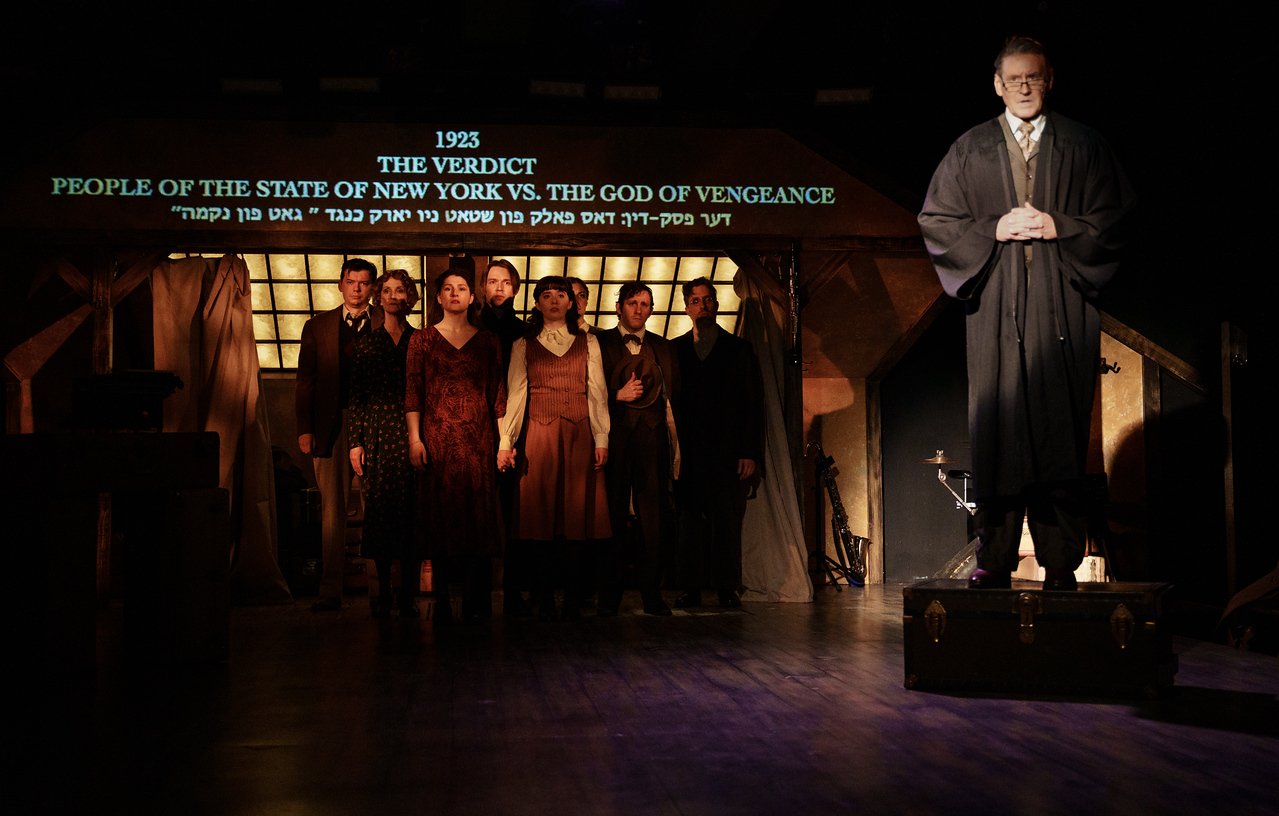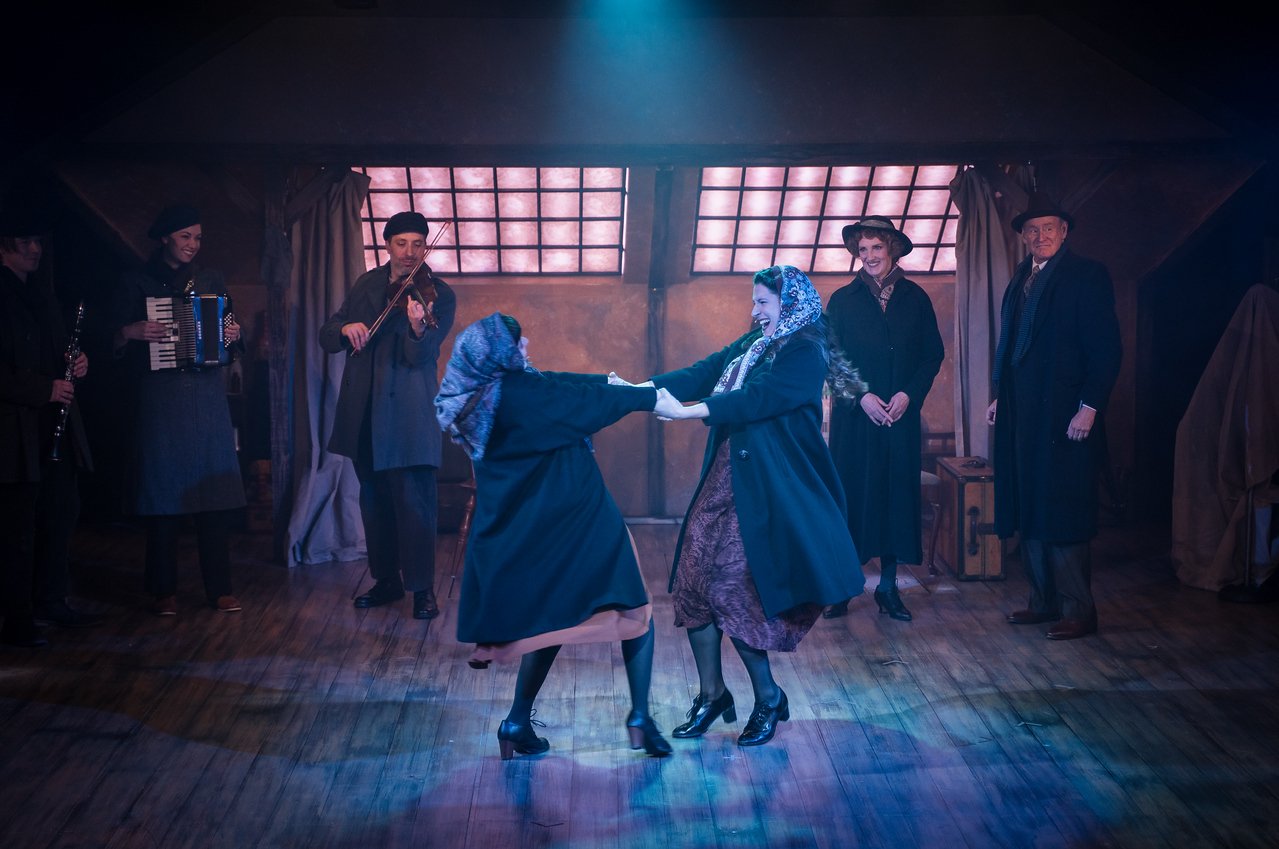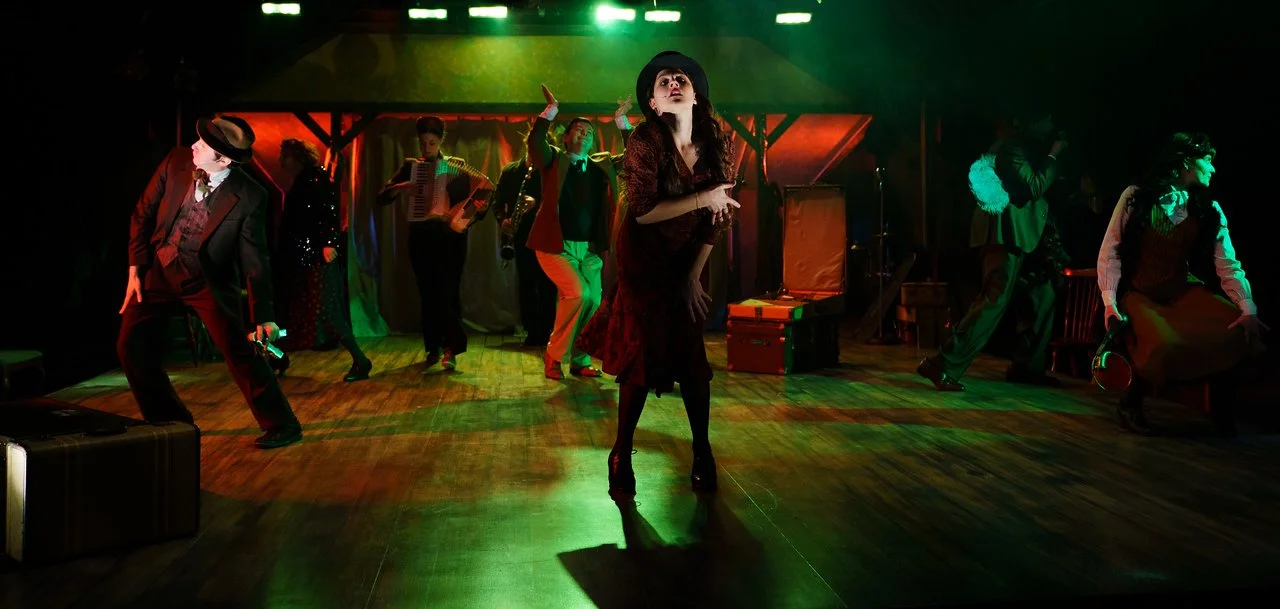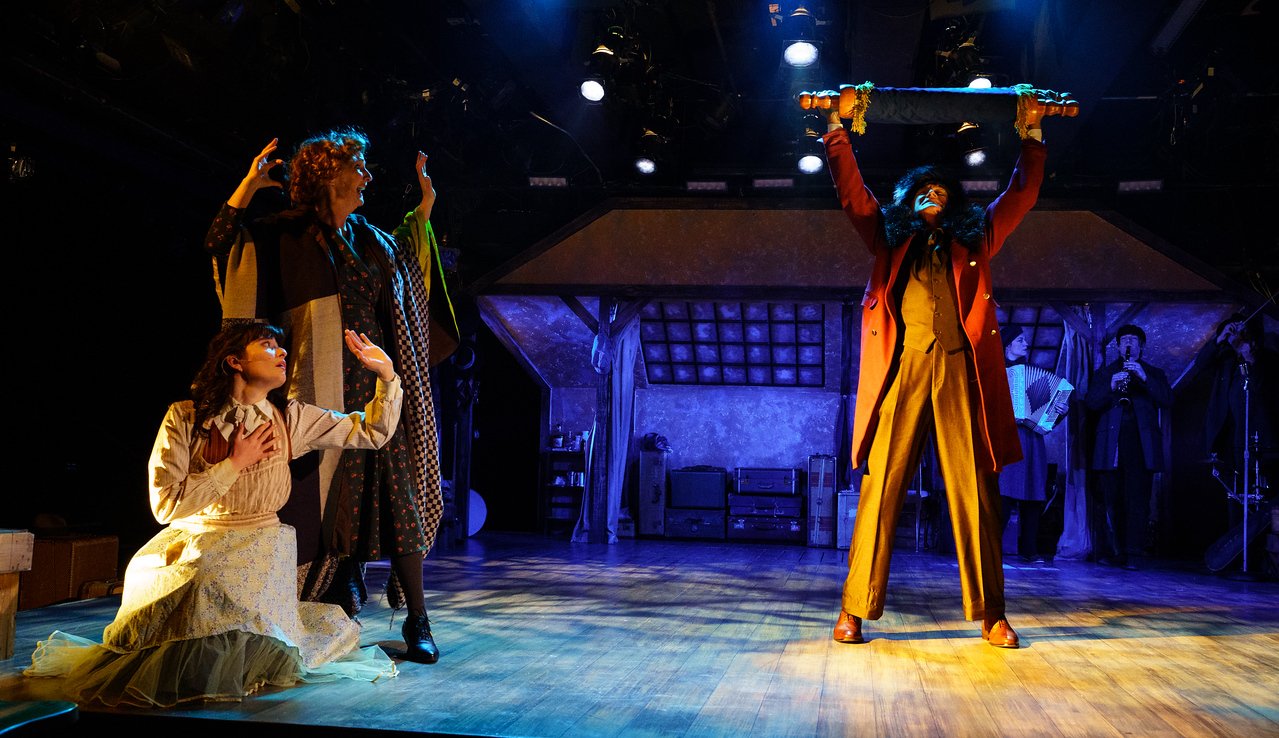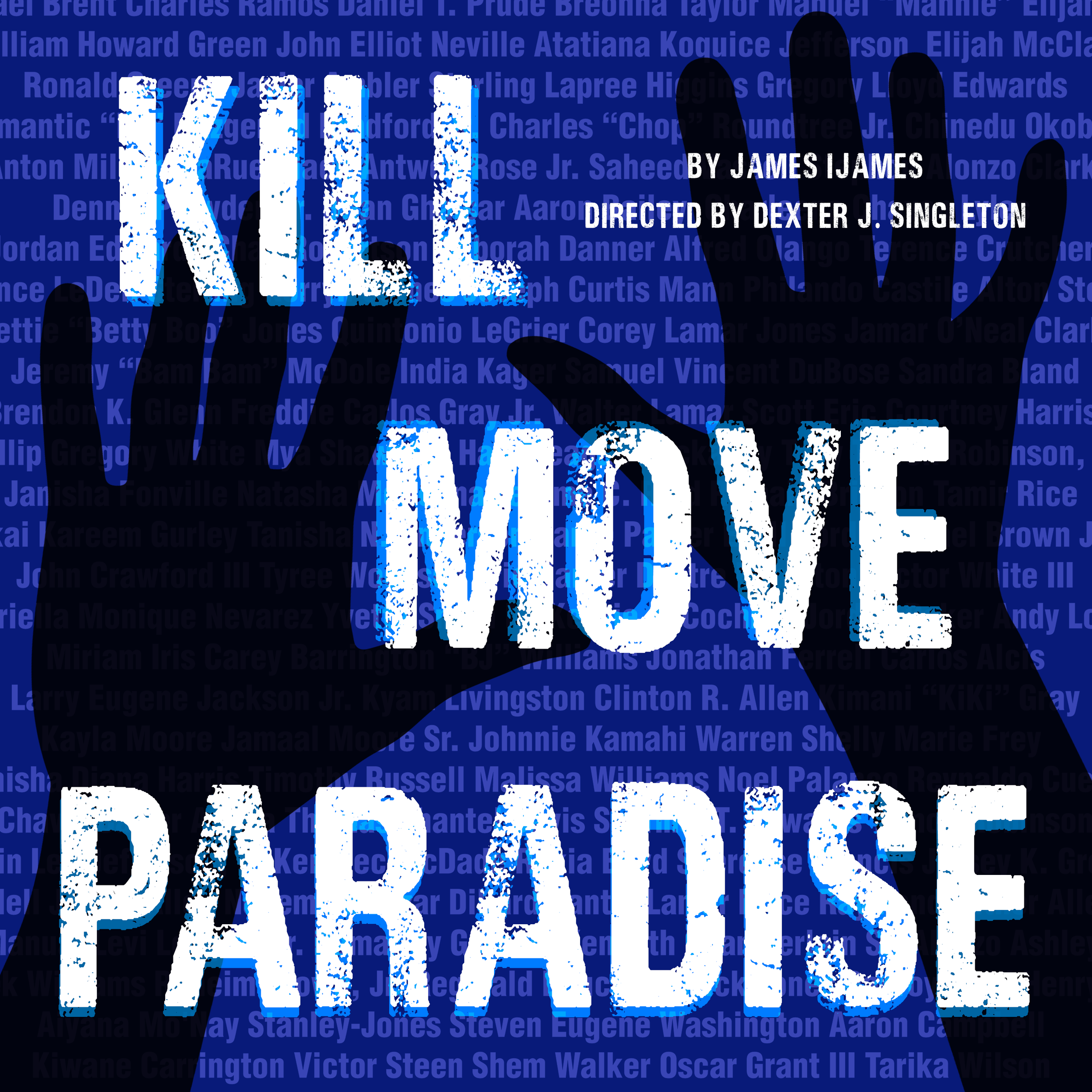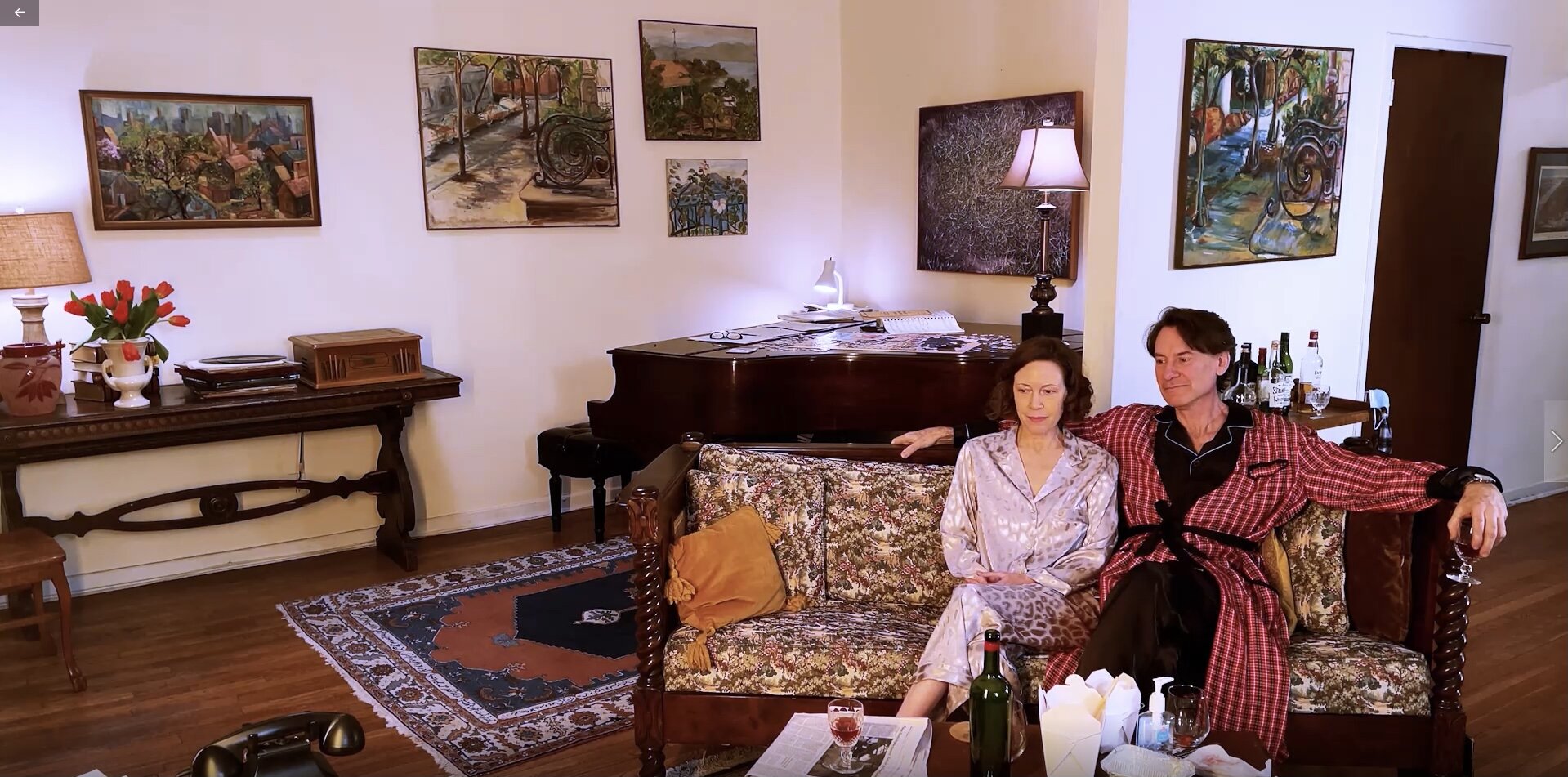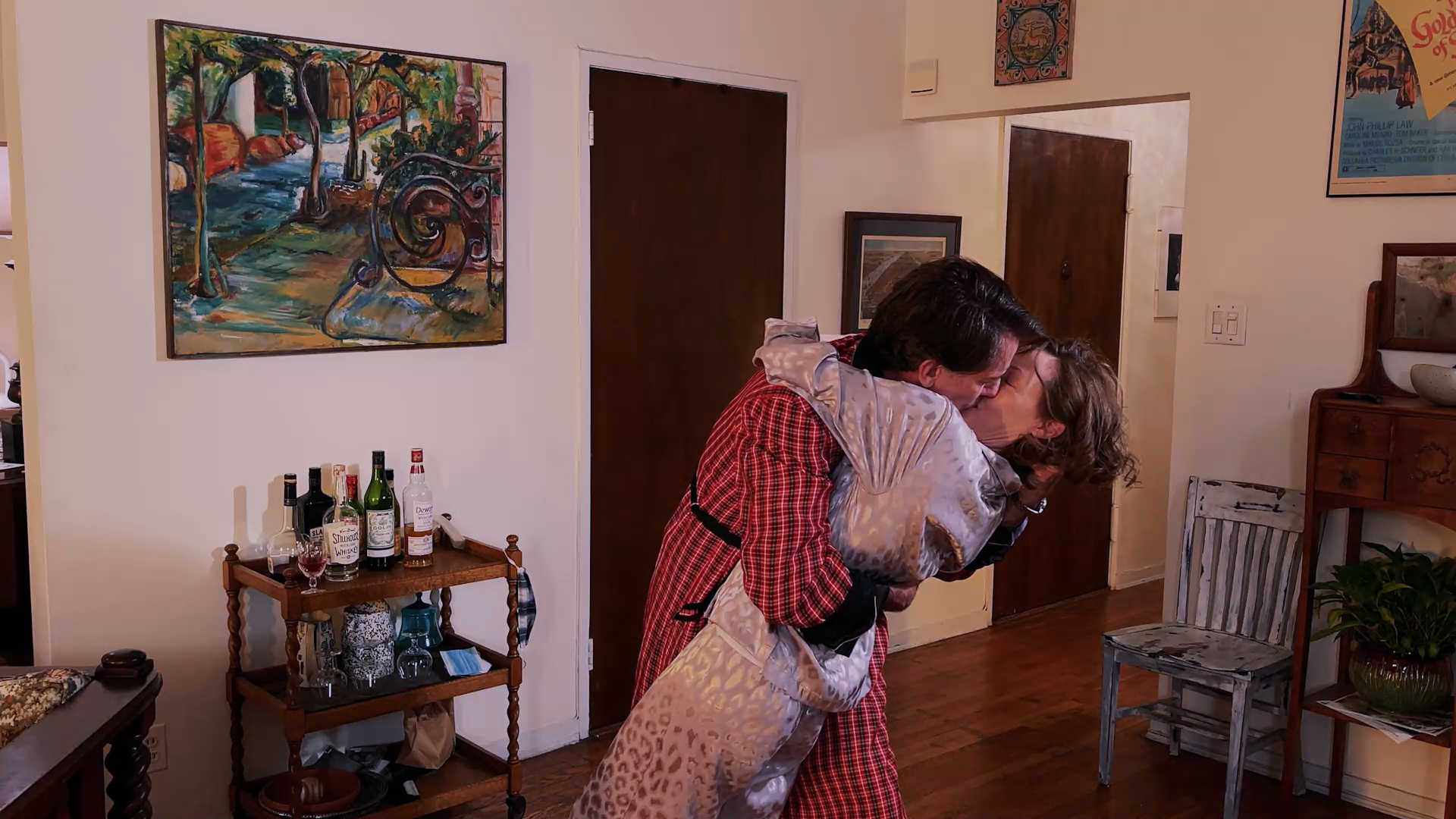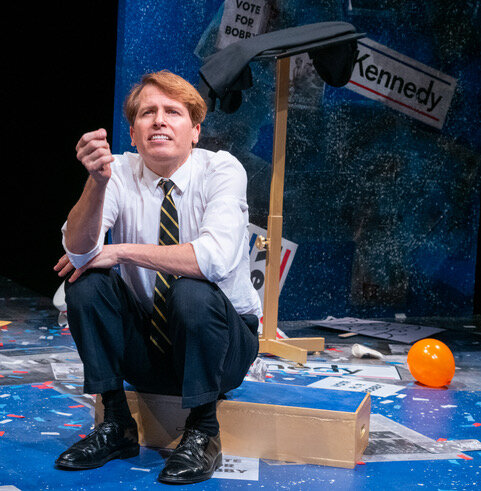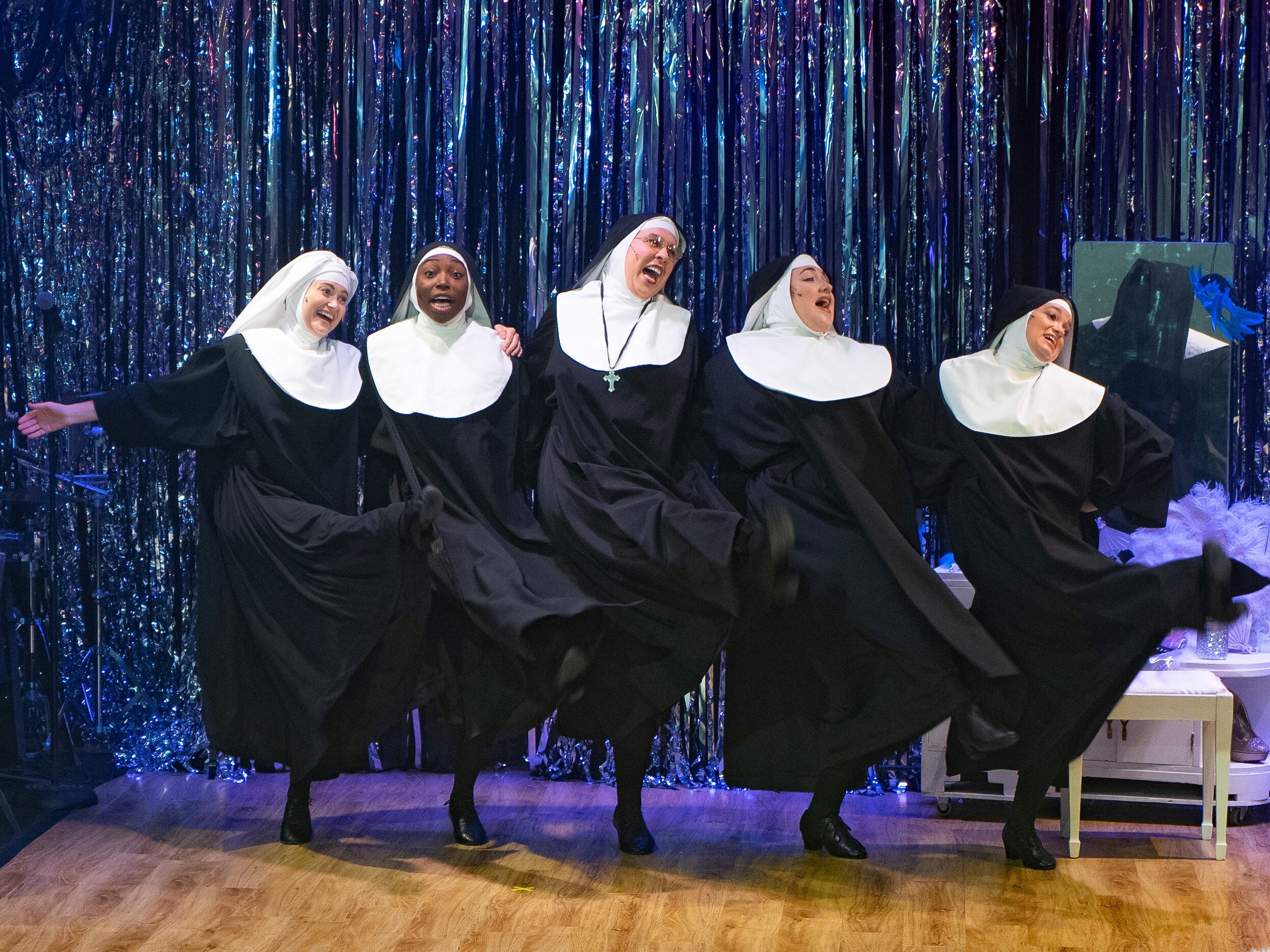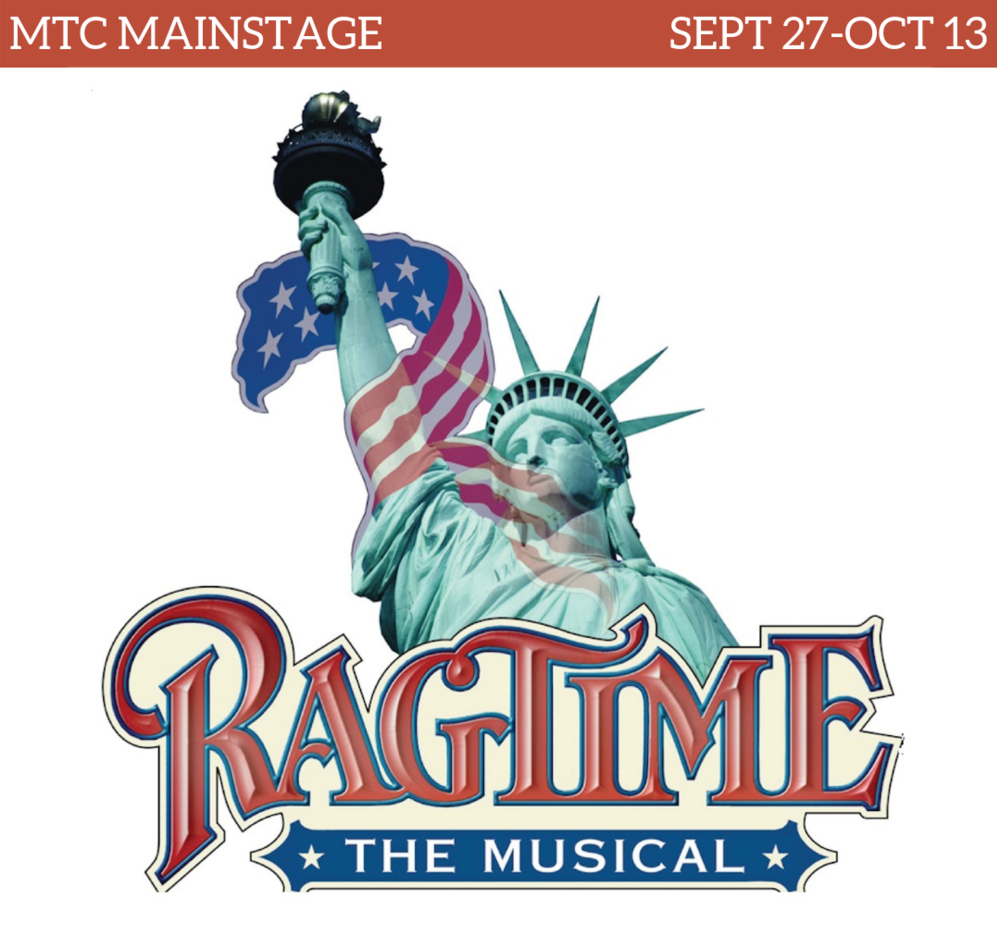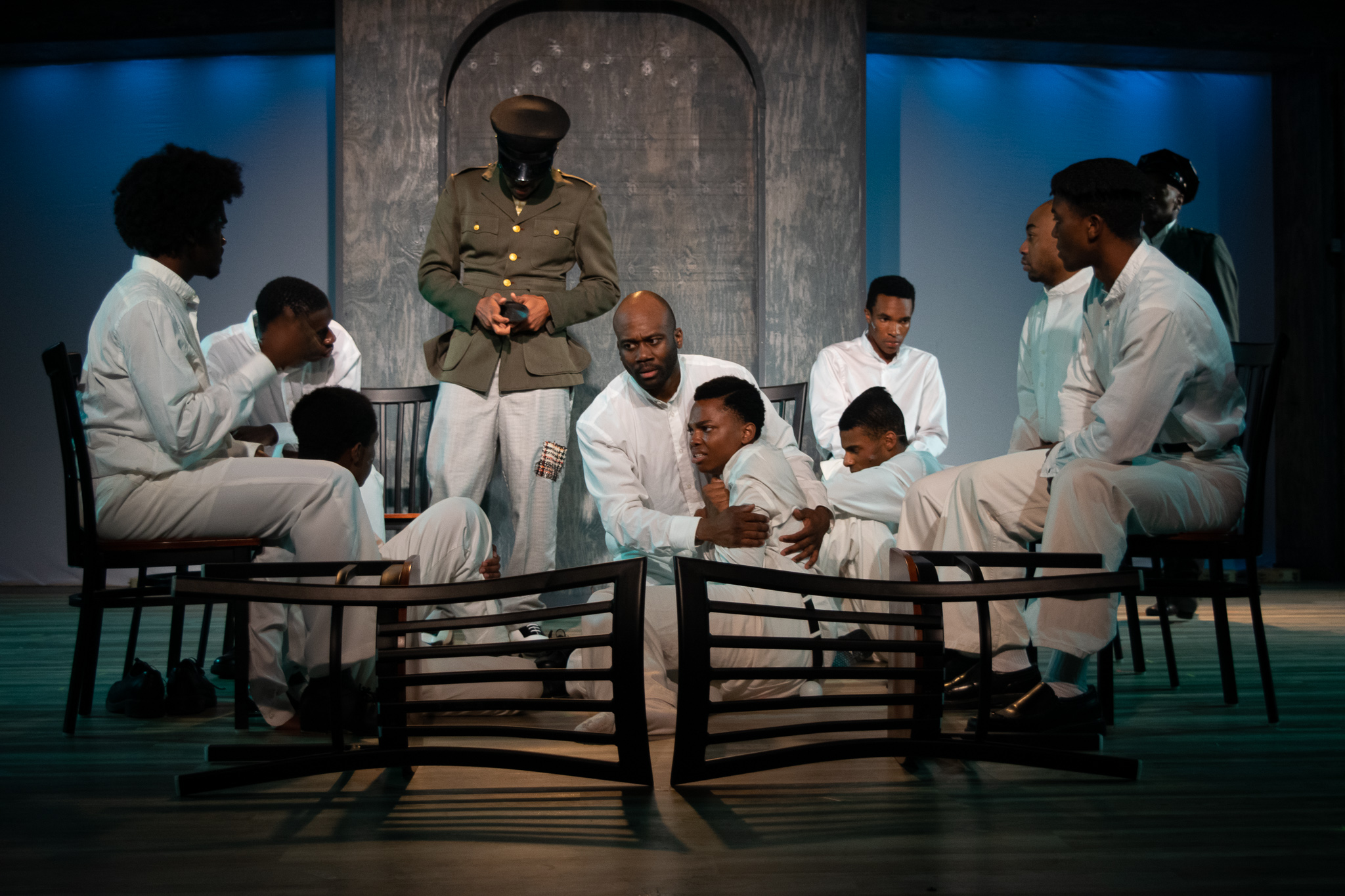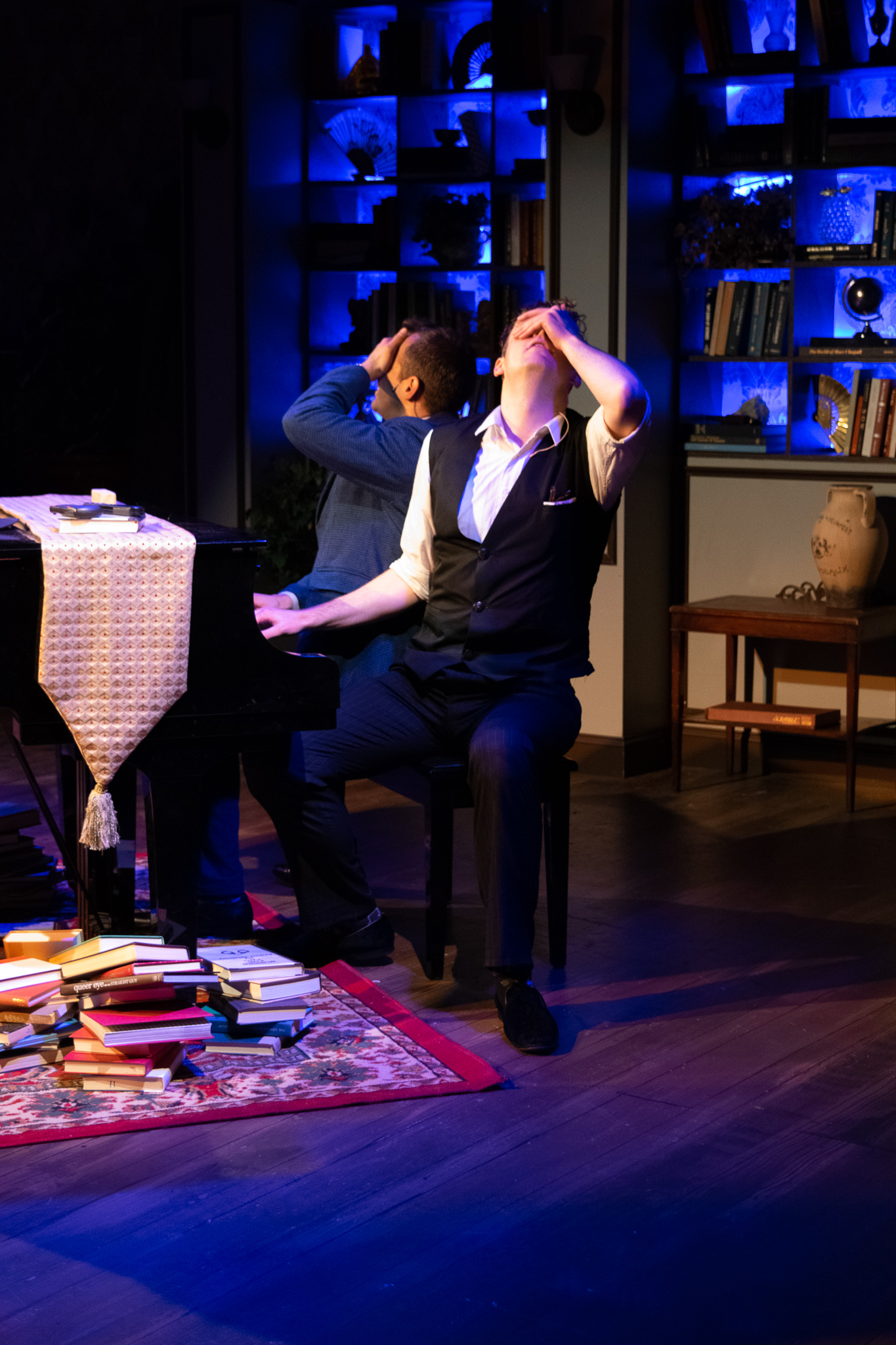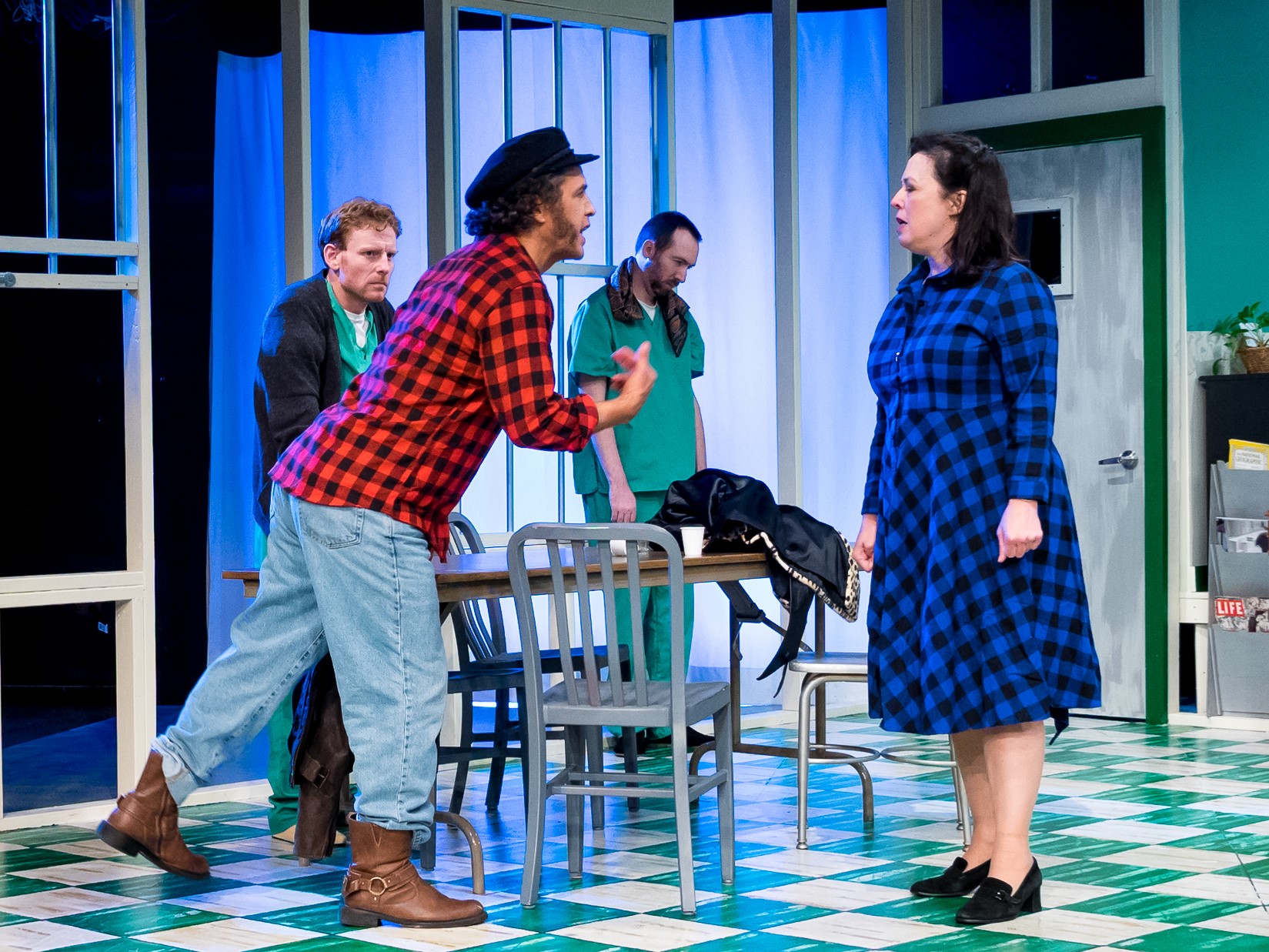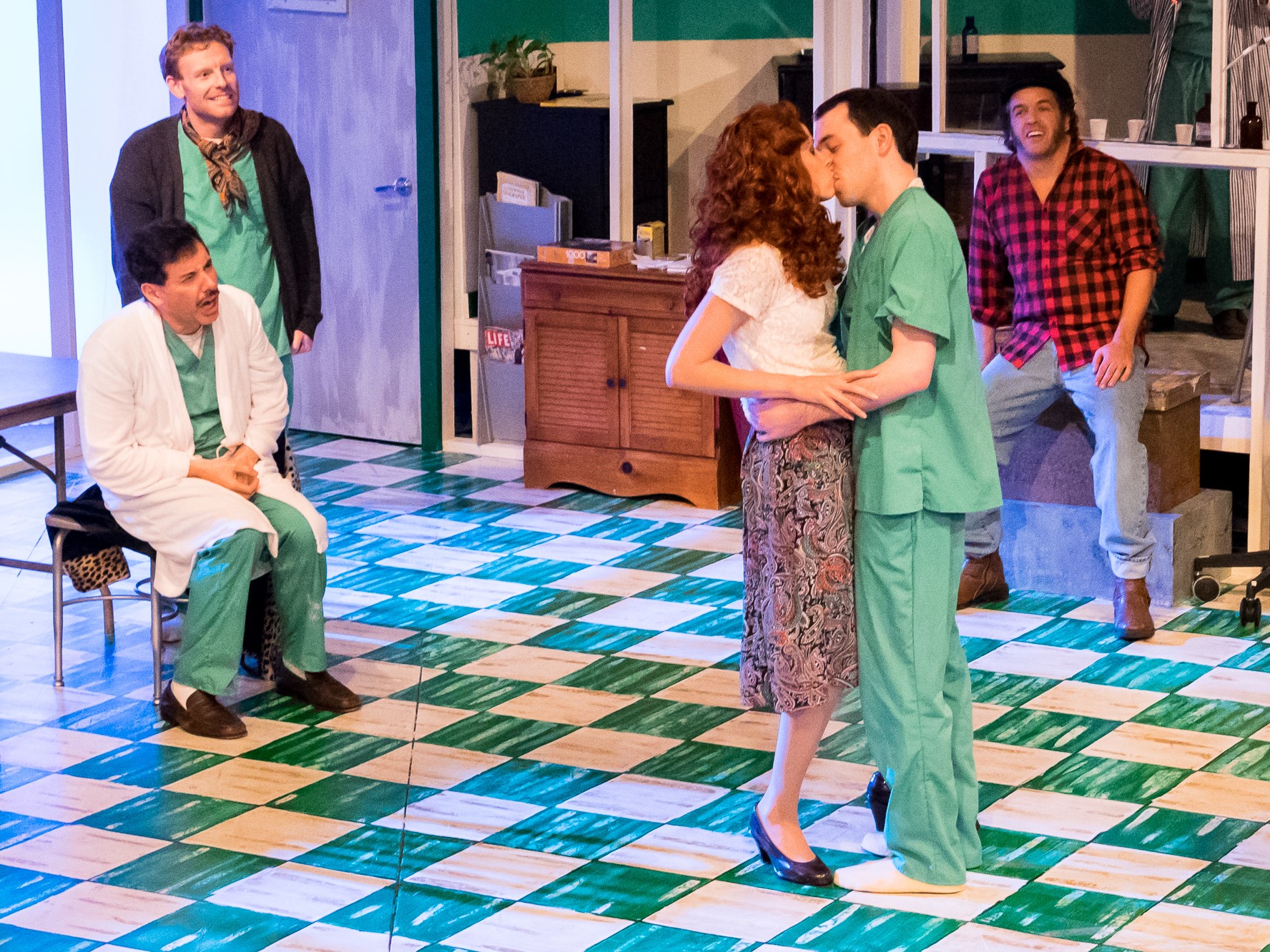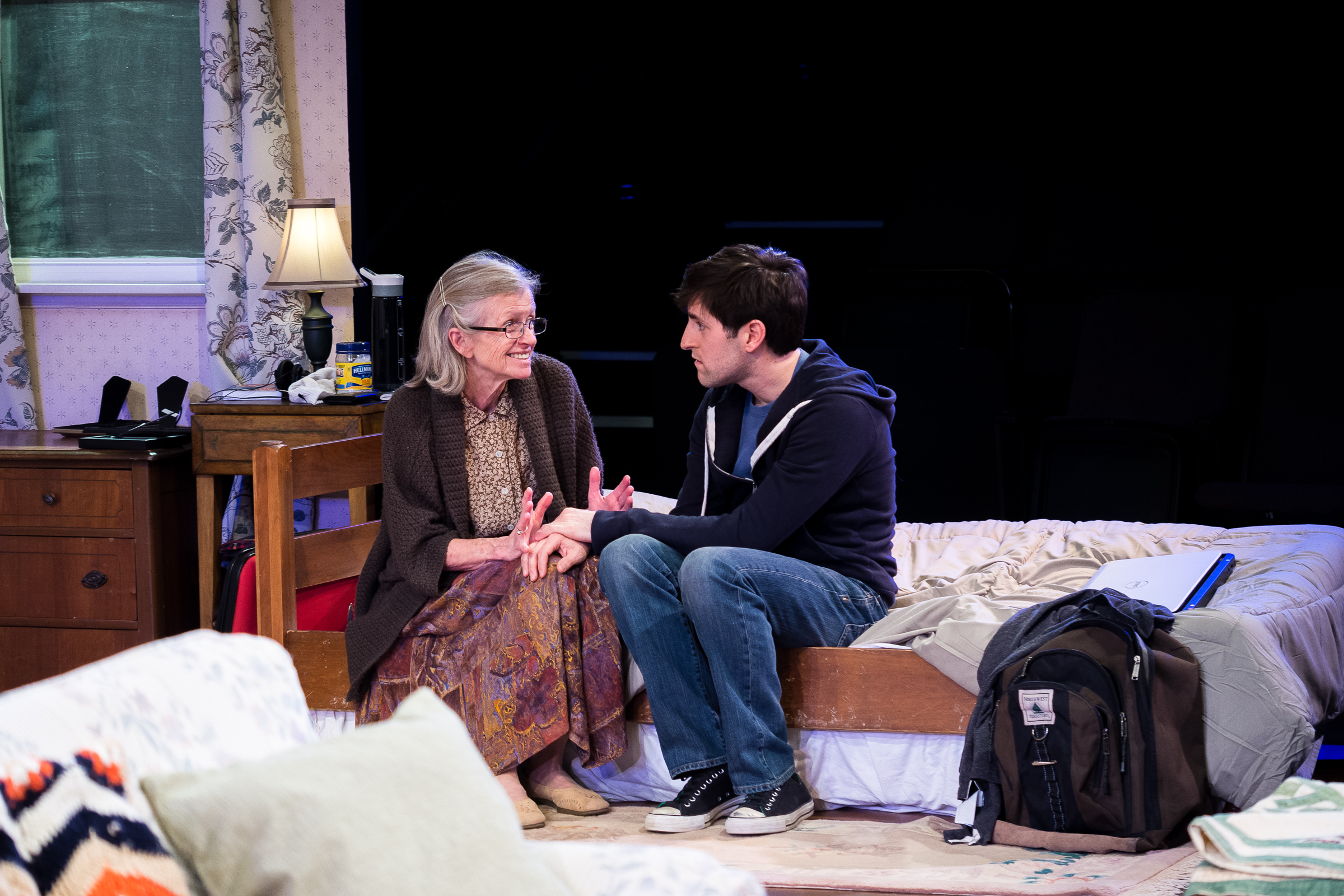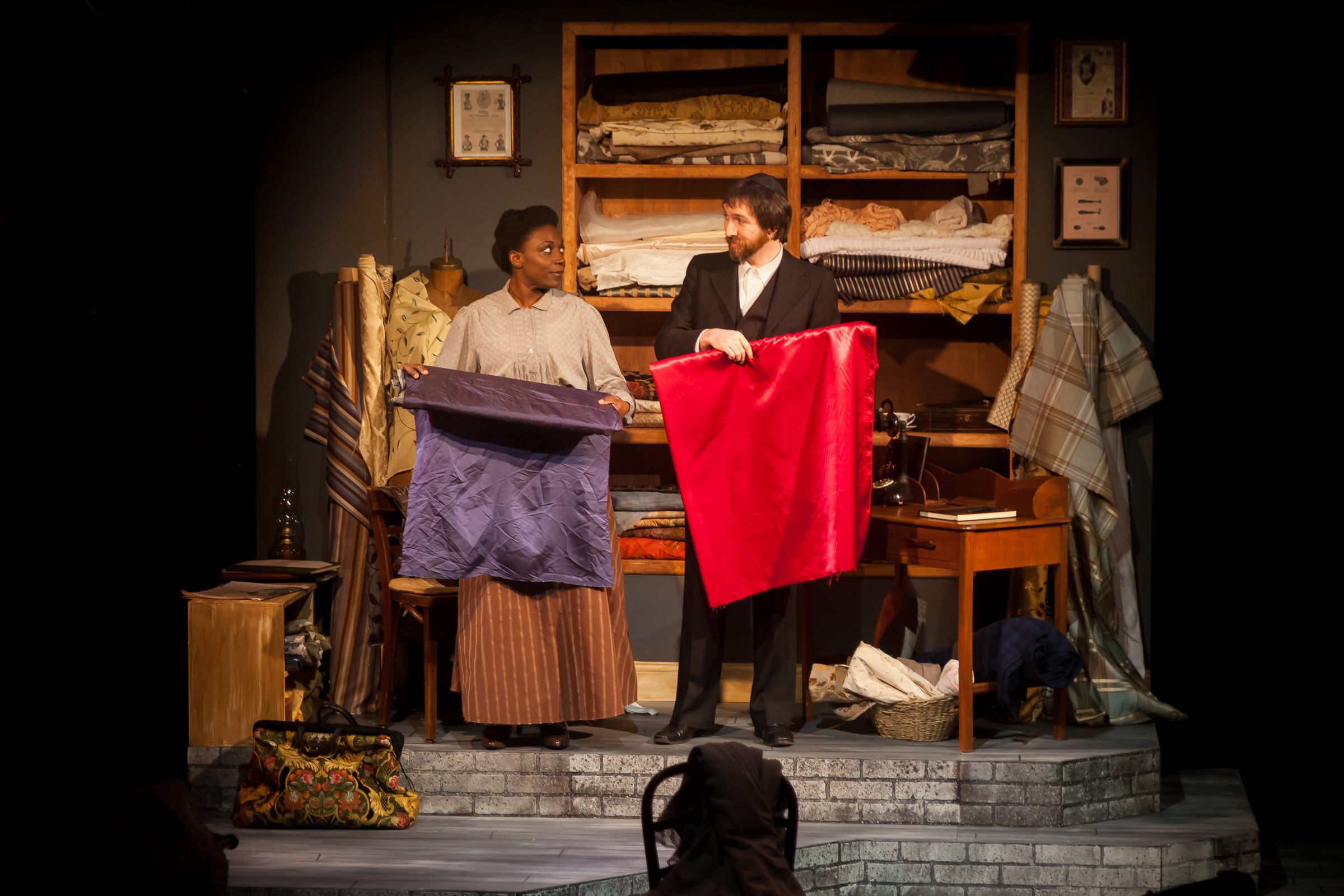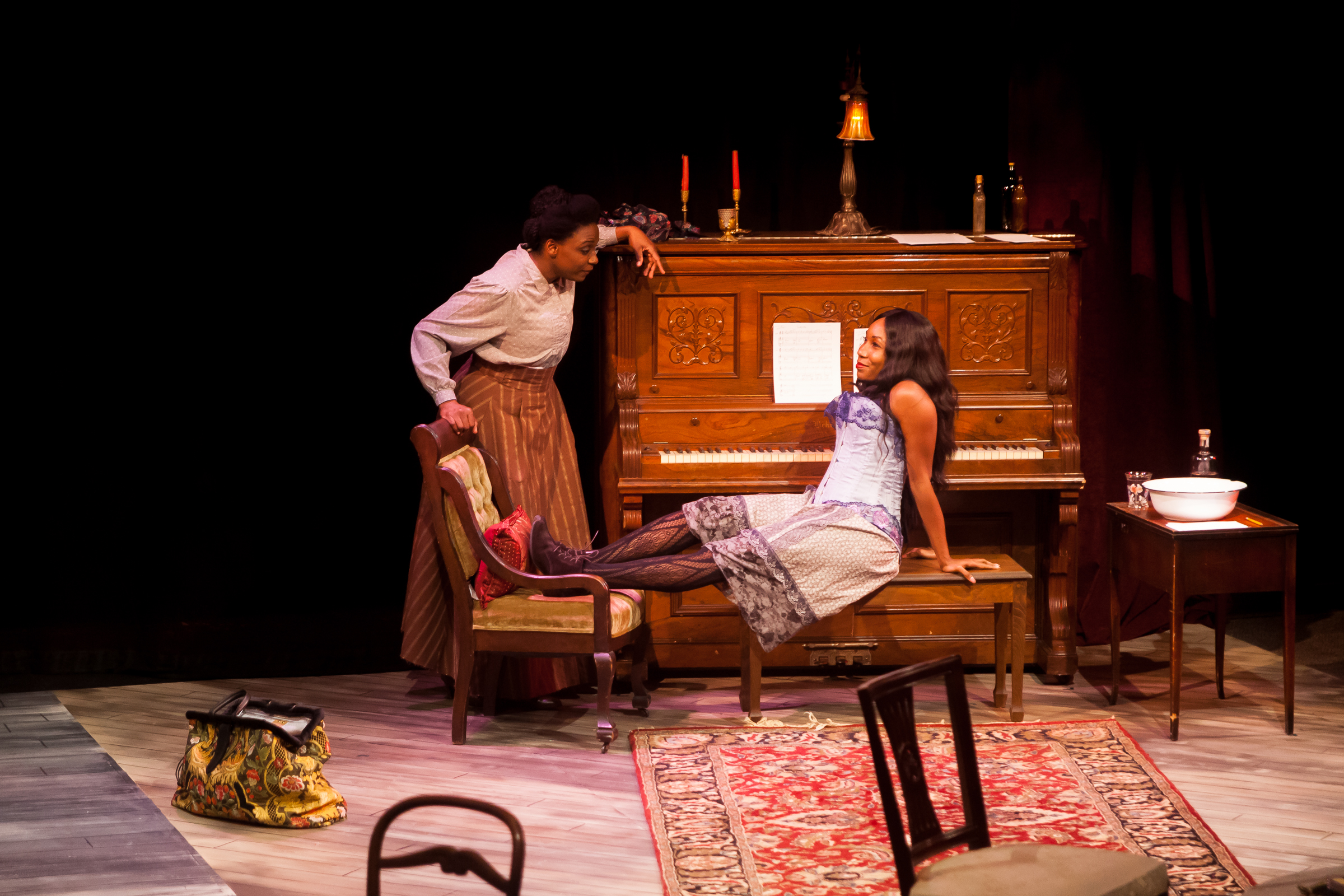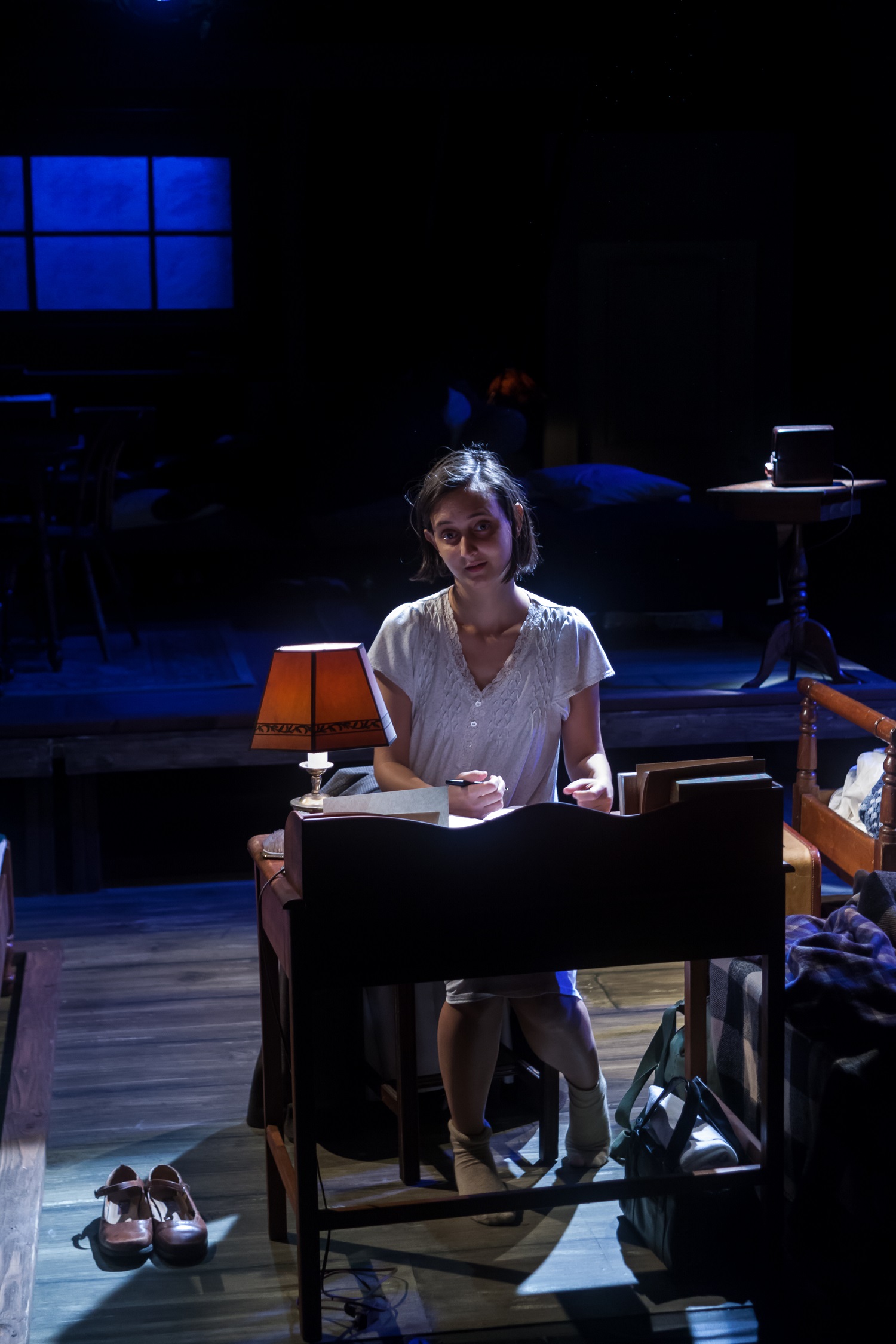Review of Indecent, Playhouse on Park
The hero of Paula Vogel’s Indecent is a play we don’t get to see. Vogel’s complex retrospective reworking of the historical fortunes of the play The God of Vengeance by Sholem Asch renders Asch’s play in a variety of registers. We see it as a melodramatic set piece, played for laughs when we witness the comic overacting by famed Yiddish actor Rudolph Schildkraut (Bart Shatto), and as a lyrical evocation of love between two women—both in Asch’s play and in Vogel’s—as well as a celebration of Jewish identity as championed by Lemmel (Dan Zimberg), an unassuming tailor turned intrepid stage manager. All of which makes Asch’s play seem rather amorphous, a factor increased by the many eras and places in which Vogel’s fast-moving and varied play situates Asch’s work. In the end, Asch’s play determines the scope of Vogel’s.
Bart Shatto (foreground) and the cast of Playhouse on Park’s production of Paula Vogel’s Indecent (photo by Meredith Longo)
Indecent’s script is episodic and mostly chronological, with each new wrinkle in the fortunes of Asch’s play depicted by dramatizations of both onstage and offstage events. It’s a fascinating journey through thirty years of Jewish theater, from the 1920s to the 1950s, and from the Yiddish theater for which Asch wrote, and which thrives in many countries, to Broadway and a bowdlerized translation into English that lands the cast in jail, to the Lodz ghetto where incarcerated Jews enact the play under constant threat, and finally to a proposed U.S. revival during the Fifties while Asch was being investigated by the House Unamerican Activities Committee. Asch’s play, it seems, has something to offend anyone, potentially—and even Vogel’s play is not immune. Recently, Indecent was dropped from the theater schedule at Douglas Anderson School of the Arts, a magnet high school in Florida, for content deemed too mature, which may be just another way of saying “indecent.”
Helen Laser and Kirsten Peacock, foreground, and the cast of Playhouse on Park’s production of Paula Vogel’s Indecent (photo by Meredith Longo)
Though called “indecent” by the men who first gather to read it in a salon at the home of I.L. Peretz (Shatto), Asch’s play becomes a success on the Yiddish theater circuit. It seems only English-speaking audiences—in the U.S. and the UK—have a problem with the play’s frank depiction of prostitution, as a business and as a culture, and with same-sex amours between the women, Rifkele (Helen Laser), daughter of the brothel owners, and Manke (Kirsten Peacock), a friendly prostitute. Underlying Asch’s play and Vogel’s is a theme of the threat to patriarchy implied in women choosing to live by their own mores. In addition, the English-speaking audiences of The God of Vengeance may be troubled by Jewishness as both an ethnic and religious identity and that “trouble”—in Vogel’s script—segues into Nazi Germany’s persecution of Jews simply for being Jews. There’s also some frank discussion of how the more self-righteous authorities within Jewish culture feel called upon to suppress or persecute those elements they deem “indecent”—including actors in Broadway plays who depict a lesbian kiss onstage.
The cast of Playhouse on Park’s production of Paula Vogel’s Indecent (photo by Meredith Longo)
What makes Indecent work so well in the Playhouse on Park production directed by Kelly O’Donnell is the way the staging foregrounds the theatrical troupe enacting the play. From the show’s start when the actors are all positioned around the center stage and then are introduced by Lemmel—the cast divided into Ingenues, Middles, and Elders—we are following a deliberately theatrical production that can feel at times almost improvised. The vivid staging, with wonderfully atmospheric musical interludes led by music director Alexander Sovronsky, draws us into Asch’s play in its different productions, its ongoing, fraught reception and, particularly, Vogel’s depiction of Asch’s play’s effect on the lives entwined with it.
Jack Theiling, foreground, and the cast of Playhouse on Park’s production of Paula Vogel’s Indecent (photo by Meredith Longo)
Some of the key elements here are the wonderful rapport between Helen Laser, as two different actresses who play Rifkele, and Kirsten Peacock, as the actress playing Manke. Their scenes are always engaging. Dan Zimberg’s Lemml is an asset as well; his naivete is both touching and comic, but his passion for Asch’s play provides a sturdy foundation against the playwright’s fluctuating appraisals.
The staging at Playhouse on Park is impressively achieved. The poetic use of showers of sand and showers of rain creates striking visual effects, and the set backdrop, by Johann Fitzpatrick, provides a glimpse of a compressed urban environment. Costumes by Izzy Fields have wonderful verisimilitude, and Joe Beumer’s lighting design deserves special mention as a wonderfully evocative feature—particularly in some of the segments of the play-within-the-play and in the cabaret sequences, so well choreographed by Katie Stevinson-Nollet. The control of movement and blocking throughout this incredibly active play is superlative.
Helen Laser, Noa Graham and Bart Shatto, foreground, in Playhouse on Park’s production of Paula Vogel’s Indecent (photo by Meredith Longo)
The show is a treat for the eyes, but also for the ears when we consider how the cast has to emulate at times the accents of the polyglot characters they play. Subtitles tell us what language characters are supposedly speaking—though we hear them mostly in English—but at times they break into English inflected by their countries of origin, letting us have a quick grasp of how European Asch’s work is. Indeed, Dan Krackhardt’s best scene as the playwright Asch comes when he confesses that he didn’t object more strenuously to the changes in the Broadway version of his play because he doesn’t read English very well. There are many such moments in Vogel’s play, designed to bring out the many conflicts and accommodations and compromises that are so much a part of the theater culture that the characters and the troupe of actors participate it.
Dan Krackhardt, center, with Jack Theiling (clarinet), Michelle Lemon (accordion), Alexander Sovronsky (violin) in Playhouse on Park’s production of Paula Vogel’s Indecent (photo by Meredith Longo)
Indecent can be called a theater-lover’s play, at times wry, at times wrenching, but always in service to the trials and tribulations of trying to make art equal to the true range of human emotion and experience. Expect a fully engaging evening—much better than decent.
The cast of Playhouse on Park’s production of Paula Vogel’s Indecent, directed by Kelly O’Donnell (photo by Meredith Longo)
Indecent
By Paula Vogel
Directed by Kelly O’Donnell
Music Direction by Alexander Sovronsky
Choreography by Katie Stevinson-Nollet
Scenic Designer: Johann Fitzpatrick; Costume Designer: Izzy Fields; Lighting Designer: Joe Beumer; Sound Designer: Jeffrey Salerno; Props Manager: Erin Sagnelli; Stage Manager: Emily Todt
Cast: Noa Graham, Dan Krackhardt, Helen Laser, Michelle Lemon, Ben McLaughlin, Kirsten Peacock, Bart Shatto, Alexander Sovronsky, Jack Theiling, Sydney Weiser, Dan Zimberg
Playhouse on Park
January 25-February 26, 2023
To support Playhouse on Park, here are details of the SHOW YOUR LOVE campaign:
SHOW YOUR LOVE to Playhouse on Park this February
(WEST HARTFORD, CT) - This year marks Playhouse on Park’s 8th annual SHOW YOUR LOVE campaign. As we emerge from the pandemic, it is more important now than ever before to keep the arts alive! You can make an impact by donating to Playhouse on Park throughout the month of February.
Participate by making a donation of $5 or more, and your name will be added to the “Window of Love” at the theatre. Playhouse on Park's goal is to raise $30,000 from February 1 - 28 through this campaign. “Like" Playhouse on Park's Facebook page (https://www.facebook.com/PlayhouseOnParkTheatre/) and stay up to date on how you can donate to the Facebook Fundraising event.
You may also donate online at www.playhouseonpark.org, in person at the box office, or mail your donation to: Playhouse on Park 244 Park Road, West Hartford, CT 06119. Checks should be made payable to Playhouse Theatre Group, Inc. All donations are 100% tax-deductible. Thank you for your support!
About Playhouse on Park: Managed under the direction of Playhouse Theatre Group, Inc., Playhouse on Park is Greater Hartford’s award-winning destination for the performing arts. Playhouse on Park offers a wide range of thought-provoking, inspiring and thoroughly enjoyable professional theatre productions that leave audiences often smiling, sometimes crying, and always talking about what they have just experienced.
